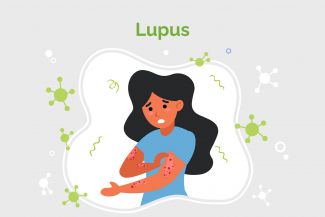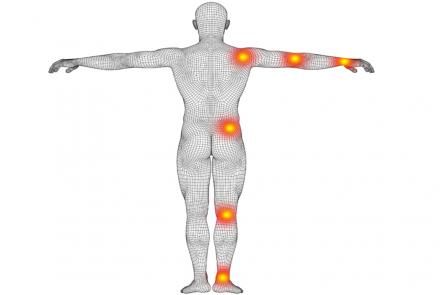Lupus is a chronic, autoimmune disease that can damage any part of the body (skin, joints, and/or organs inside the body). Chronic means that the signs and symptoms tend to last longer than six weeks and often for many years. Lupus affects about 5 in 10,000 people. Most often, lupus starts in people in their 20s and 30s. It occurs 10 times more often in women than in men.

There is no cure for lupus. However, treatment options to control symptoms are available. Most people with lupus can lead active, healthy lives.
Treatment plans should meet the individual patient's needs and may change over time. To develop a treatment plan, the doctor tries to:
- Prevent flares
- Treat flares when they do occur
- Minimise complications
Mild forms of the disease may be treated with:
- NSAIDs for joint symptoms, after talking with your doctor
- Corticosteroid creams for skin rashes
- Hydroxychloroquine (a drug used to treat malaria) and low dose
Treatments for more severe SLE may include:
- High dose corticosteroids
- Cytotoxic drugs (drugs that block cell growth or drugs which dampen or corticosteroids for skin and arthritis symptoms suppress the immune system):These medicines are used if you do not get better with corticosteroids, or if your symptoms get worse when you stop taking them.
Side effects from cytotoxic drugs and high dose corticosteroids can be severe, so you need to be monitored closely if you take them.
Changed
22/Apr/2025
Community
Condition











